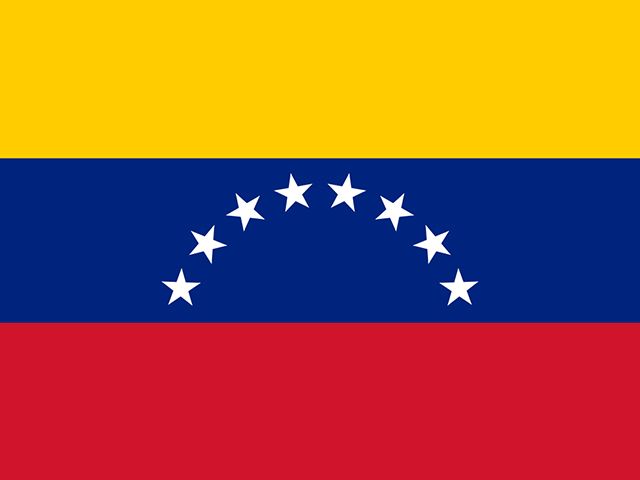News Release: Venezuelan crisis could cause public health emergency in South America
| Datum: | 22 februari 2019 |

Today the second paper on the humanitarian crisis in Venezuela, from a group of international scientists, including UMCG researcher Adriana Tami, was published in Lancet Infectious Diseases. The paper is about the political crisis and declining oil revenues in Venezuala that is causing a resurgence of infectious diseases measles and diphtheria and other deadly, vaccine-preventable diseases.
News Release - 21 February 2019
Since the early 2000s Venezuela has faced severe economic crisis caused by political instability and declining oil revenue. In particular, public health provision has suffered with an exodus of trained medical professionals and long-term shortages in medicines and medical supplies.
As a result the country, which was once a leader in public health policies and disease control in Latin America, is now facing a re-emergence of many deadly diseases on a scale scientists describe as “an epidemic of unprecedented proportions”.
Now, in new University of Glasgow-led research published in The Lancet Infectious Diseases, researchers present the most detailed update on the health crisis in Venezuela to date.
In this unprecedented study, Venezuelan scientists and clinicians, and a global network of health scientists, amongst which researchers from the University Medical Centre Groningen, The Netherlands, draw on new Venezuelan public health records, the health records of bordering states (Brazil, Colombia), as well as data held by academic institutions in Venezuela.
In light of their findings, researchers are urging regional health authorities to take action to address these worsening epidemics in Venezuela, in order to aid those affected and to prevent an emerging public health crisis in Latin America
The study focuses on the increase in vector-borne diseases (those spread by insects) in Venezuela including: Malaria, Dengue, Zika, Chagas Disease and others.
Five per cent of the Venezuelan population (1.6 million people) have emigrated since 2015 – and the researchers present data to suggest this surge in migration is spreading deadly diseases in the region and beyond.
Malaria, in particular, is a major problem. Between 2000-2015 Venezuela witnessed a 365% increase malaria cases followed by a 68% increase (319,765 cases) in late 2017. Rates of malaria also appear to be linked to the hyperinflation of the Venezuelan currency.
The authors express: “The re-emergence of diseases such as malaria in Venezuela has set in place an epidemic of unprecedented proportions, not only in the country but across the whole region. Based on the data we have collected we would urge national, regional and global authorities to take immediate action to address these worsening epidemics and prevent their expansion beyond Venezuelan borders.”
“Data is limited due to the ongoing economic and political crisis in Venezuela, however, using the information available we have been able to provide a comprehensive overview of the growing epidemics of major diseases such as malaria, Chagas disease, Leishmaniasis, Zika and dengue and their ongoing spillover into neighbouring countries.”
“Tragically, Venezuelan government institutions may now be actively suppressing public health data in Venezuela. In June 2018, the Venezuelan Center for Classification of Diseases - a part of the Division of Epidemiology and Vital Statistics of the Ministry of Health, in charge of providing PAHO/WHO with updated morbidity and mortality indicators - was eliminated by the government after 63 years of uninterrupted activity. Venezuelan clinicians involved in this study have also been threatened with jail, while laboratories have been robbed by militias, hard drives removed from computers, microscopes and other medical equipment smashed.”
The study, ‘Venezuela’s humanitarian crisis, resurgence of vector-borne diseases and implications for spillover in the region: a review and a call for action’ is published in The Lancet Infectious Diseases.
Further information
In the last two decades Venezuela has seen an unprecedented rise in diseases such as malaria and Chagas disease. Between 2000-2015 Venezuela witnessed a 365% increase malaria cases followed by a 68% increase (319,765 cases) in late 2017. This combined with a nine-fold rise in the incidence of dengue between 1990 to 2016 and the re-emergence of measles and other vaccine preventable childhood diseases, has created a health crisis of major concern.
Malaria outbreaks are associated with economic migration to illegal gold mining areas in South-Eastern Venezuelan on the border with Brazil where the disease is most actively transmitted. In this review, evidence is presented to suggest that cases are spilling over into Brazil and Colombia.
Other mosquito-borne diseases such as Zika and Dengue also remain a major concern in the area too, with very high incidences of these viruses reported.
Scientists believe the ongoing public health crisis in Venezuela now has the potential to spill over and become a health crisis for the Latin American region. They also predict these diseases could spread as far as some parts of southern America due to travel and tourism.
Indeed scientists are able to show that the diseases surging in Venezuela are now extending into neighbouring countries Brazil and Colombia, and with increasing air travel, the prediction is that these diseases will travel and transmit as far as the Caribbean, and American cities such as Miami and Houston.
Internally Venezuela’s healthcare has fallen into a state of collapse, creating a severe and ongoing humanitarian crisis with no end in sight. What little healthcare remains is now unable to cope with the spread in these diseases, and as trained medical staff leave the country (a medical professor earns less than $10 US per month) disease levels are continuing to surge.
For many decades, Venezuela was a leader in vector control and public health policies in Latin America, even more so after becoming the first WHO-certified country to eliminate malaria in most of its territory in 1961.
Recently, the return of measles and other vaccine-preventable childhood infections in Venezuela has been highlighted by the Pan American Health Organization-World Health Organization.



